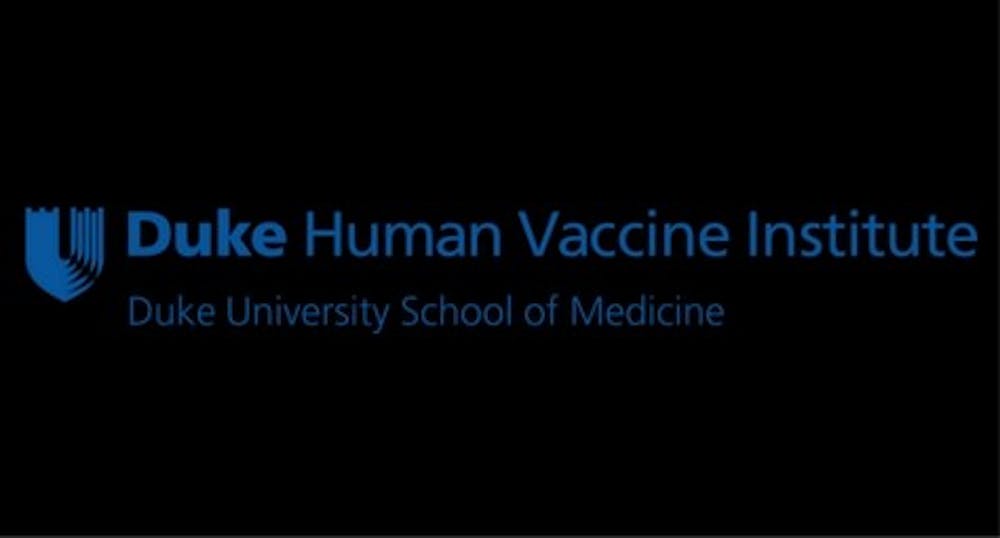A Duke-based laboratory recently received a $41.5 million contract renewal from the National Institutes of Health to quality-test HIV vaccine research.
The External Quality Assurance Program Oversight Laboratory—which is headed up by Thomas Denny, professor of medicine and global health and the chief operating officer of the Duke Human Vaccine Institute—works with NIH-funded labs around the world to ensure consistent and quality tests for clinical trials. The contract renewal is for seven years and allows the lab to begin a new program to also check the quality of incidence tests.
“When you rely on being funded from external sources, it’s one of the best days you can ever have when you find out that you are funded—and especially when you find out that you are funded for seven years,” Denny said.
He called it a “privilege” to get to do the work and noted that by renewing the lab’s contract, the NIH had given their work a vote of confidence.
EQAPOL had been quality-testing the assays under their original NIH-funded contract, which they first received in Sept. 2010. The new contract is for the same work—plus the incidence test program—so the transition into working under it at the beginning of Oct. after the original seven-year contract ran out in Sept. was “seamless,” Denny noted.
The $41,463,666 renewal came after a year-long application process, which Denny said is “always a little bit [nerve-wracking]” because of competition that may prevent the lab from winning the contract.
Their contract renewal marks a slight decrease in funding from the original contract—which awarded the lab $52.8 million—but Denny said they are comfortable with being able to fulfill the scope of the work the NIH wants with the current funding levels. For EQAPOL, securing the NIH’s funding was absolutely critical because it’s their only source of funding for the work.
“If we didn’t have the NIH contract, we wouldn’t be doing it. We are 100-percent dependent on the NIH funding to carry out the program," he said.
Denny explained that the lab’s program consists of two primary parts—testing the proficiency of laboratory assays and studying HIV viral diversity. EQAPOL works with 56 labs in 18 countries around the world, according to the lab’s press release about the renewal.
The proficiency testing aspect of the lab’s work is carried out by sending samples to the labs they work with and having the labs test the samples, he said. They then compare the results of the labs’ tests to what the samples were to see how the labs performed. If labs are not performing well, EQAPOL will provide guidance to help them become more proficient testers. Sometimes the problem is as simple as a pipette not being correctly calibrated.
“Think of it as cooking. If you’re told to put in a teaspoon of something, but your teaspoon is dented or bent and you only put in half of a teaspoon, then whatever you are doing with that is going to be off,” Denny said. “That’s the same thing that is happening here.”
Their new program to test assays regarding HIV incidence falls under the proficiency testing side of the labs' work and will be working with the 30 labs enrolled.
For the viral diversity portion of its work, EQAPOL takes samples of the HIV virus from around the world and grows it up so that they can study what subtypes of HIV “are circulating in different geographic regions.” They also provide panels of the grown viruses to those in the research world or industry who are working to develop products to fight the virus.
“What’s important though is to understand how the virus is becoming diverse in geographic locations,” Denny said. “Where that’s critical is if one is trying to make an HIV vaccine, you want that vaccine to be effective against all of the viral diversity that is out there.”
With the new contract, EQAPOL will be able to continue doing their work for seven more years.
“There are a lot of funding cycles that only go for two or three years, so being funded for seven years gives you a lot of certainty and ability to plan and to do what we hope is a lot of good science for a long period of time,” he said.
Get The Chronicle straight to your inbox
Signup for our weekly newsletter. Cancel at any time.
Bre is a senior political science major from South Carolina, and she is the current video editor, special projects editor and recruitment chair for The Chronicle. She is also an associate photography editor and an investigations editor. Previously, she was the editor-in-chief and local and national news department head.
Twitter: @brebradham
Email: breanna.bradham@duke.edu

